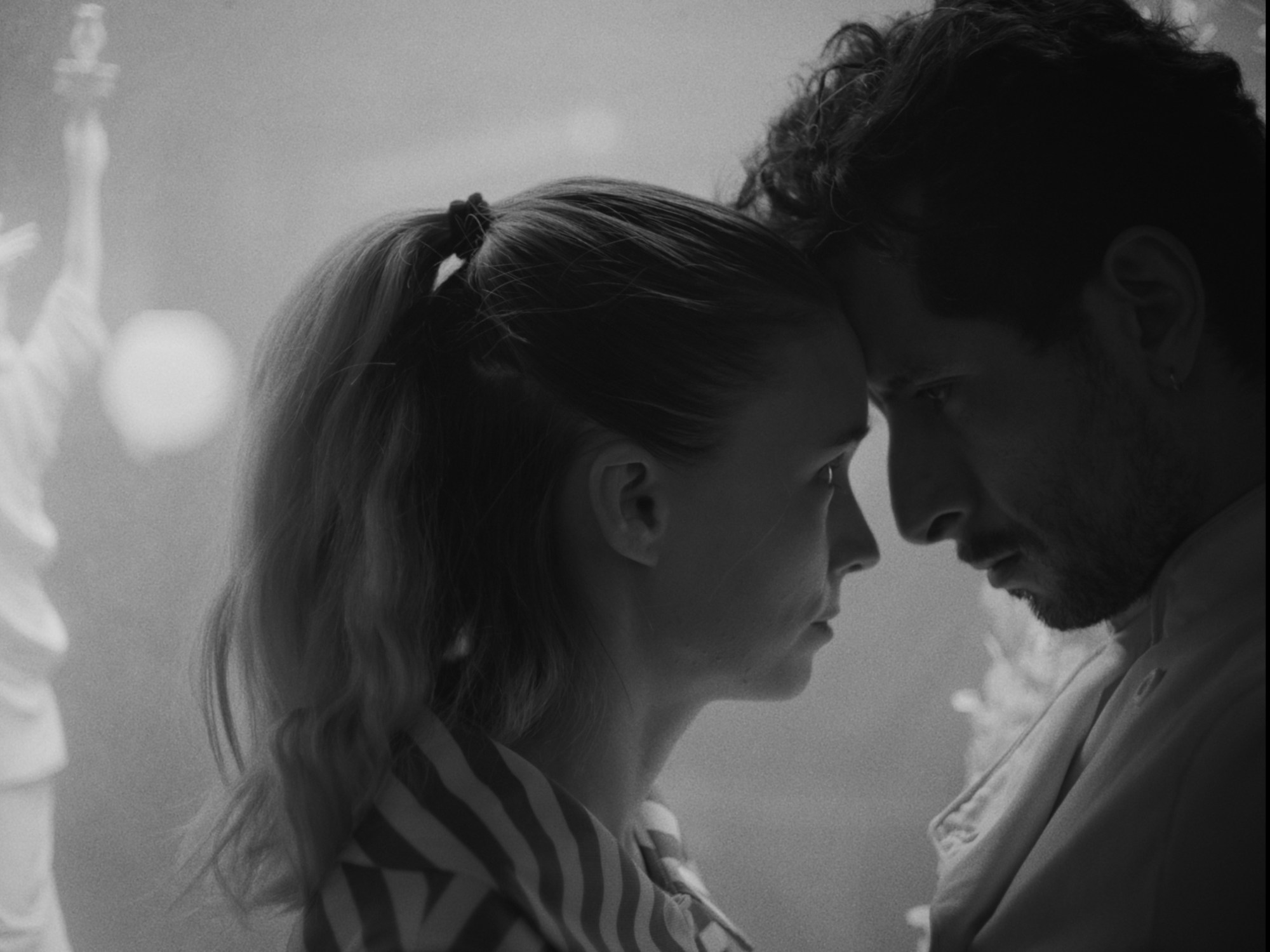
- Festivals
Reflections on the 74th Berlinale: Is It Still Our World?
Berlin’s film festival is known for its eclectic programming. A few years after the height of the pandemic, the 74th Berlinale (Feb. 15-25) offers films addressing the fact that humanity has split into angry camps and seems to be on an apocalyptic trajectory. Filmmakers around the world are reflecting on this and trying to make sense of what is happening to us. The festival – as a collective of impressions – asks a fundamental question: What do we want? The question and the films reflect that. To be sure, it is a fertile year for art and entertainment.
That theme is central to Alonso Ruizpalacios’ “La Cocina.” The opening scene follows Estela (Anna Diaz) to a popular New York restaurant where she seeks work as an undocumented immigrant. Later, we find that Estela plays only a small part in the chaotic story that ensues in the bowels of the restaurant. Her scene conveys an asphyxiating, intentional sense as if the director demands that you watch his film under pressure. This is not your typical meditation on class conflict or social injustice. He does not want you to sit back and feel sorry for his dirt-poor heroes. He wants the viewers to feel as smothered as they do.
The film centers around Pedro (Raúl Briones), an undocumented cook trapped between his estranged family in Mexico and his dire circumstances in the U.S., and Julia (Rooney Mara), a Caucasian waitress barely surviving. These two characters have a fleeting affair that leaves the girl pregnant. For a moment, both begin to believe there is a glimmer of hope. But when harsh reality hits them again, as it does for everyone in the restaurant crew, Pedro causes mayhem. And when the place gets trashed, and he himself is covered in food gunk, his furious boss asks: “What do you want?” Pedro has no answer.
In Aaron Schimberg’s “A Different Man,” Edward (Sebastian Stan) lives in New York, condemned to isolation due to his grotesque facial skin deformities. Although the story develops into a confused psychological thriller that appears to lose touch with a sense of reality, the first third of the film maintains the viewer’s interest by exposing the man’s struggles adapting to a hostile world. The external hostility is not directed only toward Edward, who hides beneath the mask of his physical condition; on the contrary, people like his neighbor Ingrid (Renate Reinsve) develop a strange fascination and even attraction toward him. Instead, the hostility is innate to the decadent city where buildings rot away and people suddenly drop dead.
Many other films carry out the theme. In Nelson Carlos De Los Santos Arias’s film, there is “Pepe,” a hippopotamus who wonders under what unnatural circumstances he was captured, transferred from Africa to America, and killed. In Mati Diop’s documentary “Dahomey,” stolen African artifacts are awakened from the long night of their exile on their way back to their origin, and in Piero Messina’s “Another End,” where the living wish to die and vice versa.
More than all of the above, Matthias Glasner’s “Sterben” (Dying) deals with the problems of our time in an astonishingly direct and honest way. In a press conference at the festival, the German director talked about how his film emerged from his experience of caring for his dying parents on the one hand and his newborn daughter on the other. “Sterben” elicits laughter and tears as Tom (played brilliantly by Lars Eidinger), a middle-aged orchestra conductor, finds himself in a complex set of circumstances to which he can never effectively respond.
Missing his father’s funeral because the electric car runs out of electricity in the middle of nowhere; caring for his ex-girlfriend’s newborn as a “half, non-biological father,” and getting caught in the crossfire; trying to keep his music composer friend from dying by suicide; listening to his mother admitting that she never liked her son and attempting to communicate with his renegade alcoholic sister … are just some of his daily situations. What threads them all together, though, is Tom’s gnawing feeling of inadequacy. Is it still our world? – he asks in an astute moment of artistic expression.
As usual, the Golden Globes had a strong presence at the festival, including a widely-praised party/event at the China Club on Feb. 16. Reps from the Golden Globes Assn. were also among the 100-plus entertainment journalists who attended the press conference with Martin Scorsese, the Golden Bear Honoree this year. He was asked to comment on the contribution of film festivals to international cinema. “Paying attention to the individual voice, the individual artist,” Scorsese responded; “a film festival has the opportunity to introduce to the world different points of view, basically making the world closer and smaller, meaning people knowing each other and knowing each other’s cultures.”
One could add that a festival like Berlin’s helps the world “become closer and smaller” thanks to its vibrant multi-culturalism but, most importantly, because its program collectively explores issues that are consciously or subliminally dealt with throughout contemporary everyday life.
If the question is what we want, could the answer be … we want everything? Could it ever be that Pedro gets the girl and the job, too? Love and decent pay? Can Edward be healthy and happy? Can Pepe, the hippopotamus, live peacefully in the African rivers? The living go on living? Can Tom simultaneously care for his loved ones and have a fulfilling artistic career? Can he do the right thing? And if we find that the answer is, yes, we could have all of it, that a whole life is still possible, then we might as well concede that the world is still ours.

